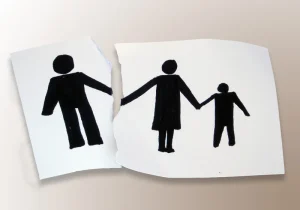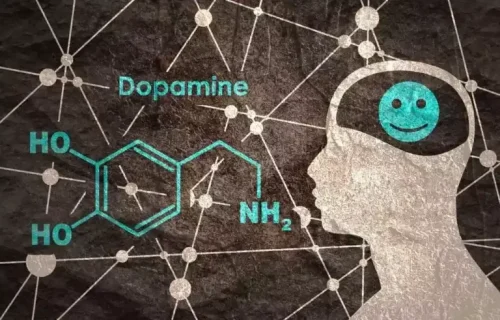
And if you feel like taking it easy while you’re in the Big Apple, head to Central Park for a picnic or a day of exploring. Regardless of the stage of recovery you’re in, certain situations can present some challenges – such as planning a vacation. While many greet the warm summer months with open arms, it can be a difficult time for those in recovery.

Small Things to Do When You Return from Vacation
- You can indulge yourself in this way, but try not to do it the whole time.
- Sober travel companions can also assist with the practical aspects of traveling.
- Engaging with online sobriety communities can provide a sense of belonging and camaraderie.
Remember to pace yourself, stay hydrated, and always let a loved one or sober friend know your plans. Spending time outdoors, in nature, is great for boosting mental health, learning new skills, and staying healthy. To take the most advantage of this activity, aim to spend at least an hour outside each day, whether it’s gardening, mowing the lawn, or enjoying a walk with your dog/pet or family. You can even capitalize on the warmer weather by trying activities like jogging, or outdoor yoga, or learning something new like paddle boarding and kayaking.
- Thriveworks was established in 2008, with the ultimate goal of helping people live happy and successful lives.
- These urges can strike unexpectedly and with great intensity, making the journey to maintain sobriety particularly challenging.
- But when you’re in recovery, the better rule-of-thumb is to stay connected to your sober friends, therapist, sponsor, group leaders and supportive family members.
- Remember, your sobriety is a priority, and by proactively addressing potential challenges, you can create a positive and supportive environment that aligns with your goals.
- My journey to freedom from alcohol has also taught me to ask for what I want.
- Make sure you are both honoring what you need to feel comfortable as well as communicating those needs to yourself, and others when necessary.
- Vacationers may also feel free from scrutiny during vacations and try drugs such as cocaine, benzos, morphine, fentanyl and heroin.
Medically Monitored Alcohol Detox in MA provides safety, support, and medication as you break the grip of alcohol.
They can trigger anxiety, boredom, or cravings for alcohol or drugs. To deal with this, pack some healthy snacks, books, music, or podcasts to keep yourself entertained and relaxed. You may also want to avoid flights with long layovers or book a direct flight if possible. Here are some tips to help you have the best sober vacations while staying true to your recovery goals. People often take a vacation to “get away from it all.” And that typically includes shutting off your phone and shutting out distractions.

How Can I Travel Without Alcohol? Top 10 Tips and Ideas for Sober Vacations
You can even check out community recreation centers for outdoor pools or outdoor exercise classes. One of the key advantages of having a sober travel companion is the accountability they provide. They can help individuals stay on track with their recovery goals by holding them accountable for their actions. By reminding each other of the shared commitment to sobriety, they create an environment of mutual support and responsibility. This accountability can help individuals resist temptations and make healthier choices while traveling. One of the significant challenges when planning a sober vacation is overcoming preconceived notions.
However, being in recovery doesn’t mean you can’t enjoy well-earned vacations at your desired destination. Following these tips can help you get the most out of your time off without jeopardizing your addiction-recovery progress. Spending your money on local goods and businesses helps support and sustain local economies. You could also make contributions to nature reserves and national parks. Meditation and other relaxing techniques are tried and tested methods of reducing anxiety symptoms and other pressures. A graduate of Middle Tennessee State University, Long has been a writer for Landmark Recovery since 2021.

Policy changes are needed to address health inequities, IBX forum speakers say
- You have certainly earned a rest after working so hard to be substance-free, but this is not an ideal time to break out of your newly established schedule.
- You can also make your own drinks with fresh fruits, herbs, and spices.
- They provide emotional support, offer accountability, and assist with logistical arrangements.
- At Design for Recovery, we specialize in helping people in recovery find a great home and community.
- To take the most advantage of this activity, aim to spend at least an hour outside each day, whether it’s gardening, mowing the lawn, or enjoying a walk with your dog/pet or family.
You will not always have control over what’s going on around you. Scheduling exercises and pampering sessions during your vacation allows you to maintain good physical and mental health. You can start your days with a relaxing yoga session, swim after breakfast and get a massage after lunch. If you often fall victim to peer pressure, pick travel companions who can keep you accountable. Going on vacation with a romantic partner, parents or friends who understand the importance of your recovery can help you remain sober during your trip. Travel companions who aren’t on a vacationing in recovery recovery journey or those who opt to overindulge and experiment with drugs during vacations can make it hard for you to remain sober.
Engaging in a new hobby or exercise routine helps reduce stress levels, enhances mental health, and supports overall recovery. Enjoy the summer weather as you embark on this journey to a healthier, more balanced you. If possible, consider directing some of the funds you might have used on alcohol towards a spa day or other pampering activity. This may sound excessive, but it takes care of me and it typically costs less than alcohol. Relapse PreventionWhen you are in recovery at home, you have probably built a daily routine that supports your recovery goals.

Managing Powerful Urges and Social Pressures While Traveling
If you get overwhelmed or triggered, find a place where you can quietly meditate, take a nap or enjoy a book or a movie until you’re ready to rejoin activities. If you have a drinking problem, making restaurant reservations lowers the chances of waiting at a bar before getting a table. Don’t ask for the drink menu at the restaurant and seek out places where you can enjoy the scenery or live entertainment after your meal while drinking juice or mocktails. Understanding situations that can cause or increase your addiction cravings help you develop ways to mitigate the risk of relapse.
Overcoming Challenges of Staying Sober on Vacation
You can share your experiences and feelings with people who understand what you’re going through and offer support and advice. You can also learn from others who have successfully traveled while sober and get some tips and tricks on enjoying your vacation without compromising your recovery. Don’t overwhelm yourself, but make it a point to avoid too much downtime, which can lead to temptation. Call ahead and pre-plan activities that will encourage and inspire you and ultimately promote your recovery. The point is to confirm that you don’t need drugs and alcohol to enjoy yourself.
Some destinations you may want to avoid your sober summer vacation are areas well known for their party culture such as Las Vegas, Cancun, and Amsterdam. Instead, try scoping out vacation spots that are not as focused on alcohol and are more family friendly such as national parks or areas that are rich in history, culture and the arts. There are even destinations such as Ocean City, New Jersey that are known as ‘dry towns,’ where the sale of alcohol is prohibited. Whether you decide to rent an RV, go glamping, or become one with nature, a getaway on the road can be thrilling – especially if you plan to stop at a few roadside attractions along the way. Let me start by saying, vacations are so much better when enjoyed fully present and sober.





